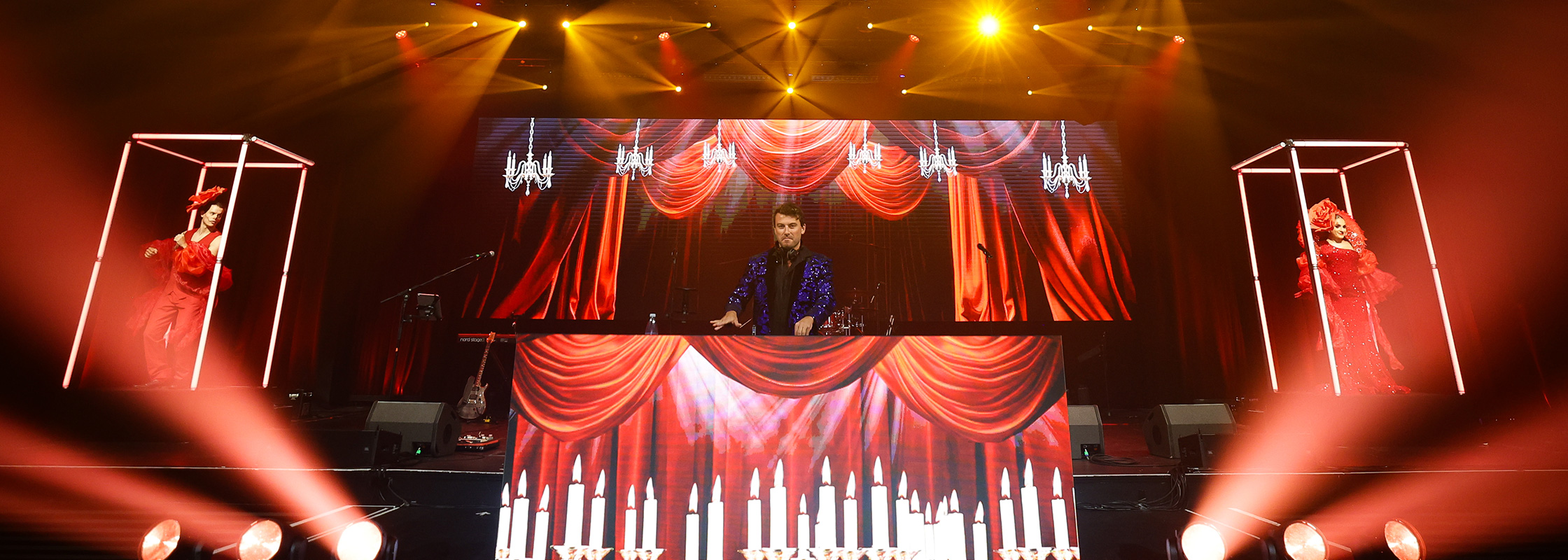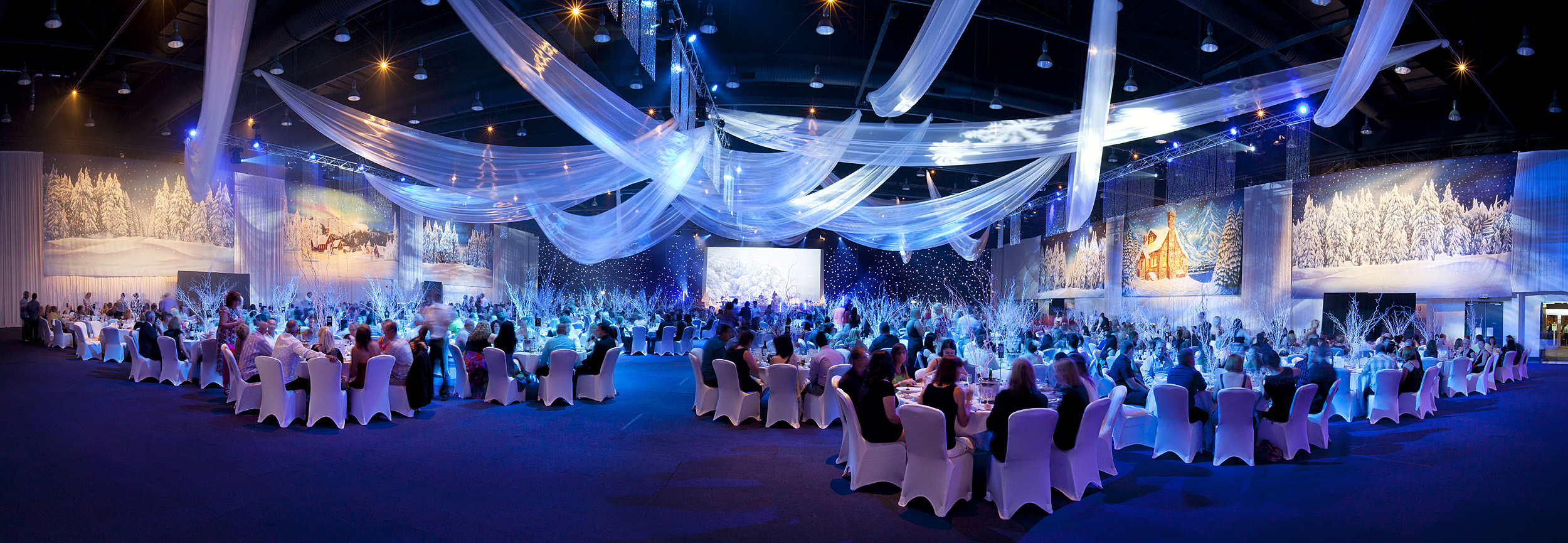Related Posts
Tags
Looking back at 2021, Encore shares predictions for what's staying in 2022.
Virtual and hybrid events aren’t going anywhere. Even after Covid, they’re expected to be a firm fixture of the event industry. 73% of event planners agree so.
That means that any event planner worth their salt needs to know the top trends for virtual events in 2021 as they start planning for 2022.
So here, for your pleasure, we have this concise list – short and sweet – of what the hottest trends are and how you can get in on the action. Now let’s get to it!
1. Micro Events and Micro-Experiences
Events inside of events, that’s what’s really going to kick off in 2022. Sure, attendees might come for your expert content in your specified field. But they’ll stay for the mini-workshops, the side games, and the exclusive entertainment.
Micro-experiences, on the other hand, are events but smaller. The principle is simple: instead of attracting as many attendees as possible and not connecting with any of them, you attract less and connect with them all. This trend for 2021 increases engagement and makes your guests feel special instead of one Zoom square among many.
2. Augmented and Virtual Reality
Augmented and Virtual reality gives virtual events much-needed depth. For a start, they can provide computer-generated attractions to give attendees a more enjoyable and memorable experience.
This extra depth will mean more meaningful engagement. VR and AR will excite and motivate attendees to interact with your event. It’s popular. Just remember back to the Pokemon Go craze. When done right, it works!
What’s more, augmented and virtual reality advances have had a significant effect on hybrid events, too. Speaking to Spacehuntr CEO Dietrich Moens, he told us, “One of the biggest surprises of 2021 so far for us has been clients inquiring about hybrid compatible venues. It’s clear that advances in technology are allowing the in-person events and virtual events to blend as one like never before.”
3. NFT’s (non-fungible tokens)
Blockchain is the technology that drives things like cryptocurrency, both literally and figuratively.
In its infancy, the principle of blockchain is still finding ways to be useful in practice. In terms of this article, we’d first like to talk about NFT’s. NFT is short for a non-fungible token, and they are about to blast off.
As recently as the spring of 2021, Grimes sold $6 million worth of digital art as NFT’s. So it’s already big business. You can read more about how NFTs were used to reshape 2021 Art Basel and Miami Art Week.
But what use is it for virtual and hybrid events?
Well, it allows event planners to create and sell unique digital content. If you think about it, nothing is sacred in the age of the internet: photos, music, films, and documents are all copyable and shareable en masse.
Thanks to NFT, event planners can offer prospective attendees exclusive content they can’t and won’t get anywhere else. In the form of digital content: images, music, videos, you name it. It’s a game-changer.
4. Facial Recognition
Facial recognition is not a new thing. But it’s becoming an increasing staple in corporate events, both in-person and virtual.
Firstly it allows for a quicker verification and check-in process. Secondly, it can be useful to deliver more data-driven and personalised content and experiences. And thirdly, it can be used to offer amusing filters to guests in waiting rooms or taking part in mini-games.
5. Event Security
Blockchain can also provide increased event security, namely in the service of identity and ticket fraud. Thanks to the ledger process, you can’t forge or re-sell tickets. Security in the supply chain will be consolidated in 2022, that’s for sure!
Similarly, 2-factor authentication methods are also growing in popularity this year. Online security is a big deal. People enter a lot of personal details when registering for events, and planners are taking that more seriously than ever.
6. Live Interpreters
If attendees can’t travel, then virtual events have to go global. Hence why you’ll see live translations and real-time interpretations becoming crucial parts of the events industry in 2022.
7. Wellness and Responsibility
Everyone’s life has been turned upside down due to Covid-19. Where and how we work has been changed forever. The event industry is no exception.
But in the light of the turmoil, there has been a greater emphasis on wellness and responsibility. It’s bled into every walk of life. 2022 will see more and more spaces in virtual events dedicated to attendee wellness, and what a good thing that is too. Whether it be yoga during breaks, in-chair mini massages or guided mediation, there are a wealth of ways to promote wellness at events and improve the overall experience.
8. Entertainment
Event planners have found firstly that the no-show rate for virtual events is dramatically higher than in-person events. And secondly, that it’s harder to engage the virtual attendees that do show up compared to their in-person attendees.
Well, what do planners do about that? Well, lure them in, and thereafter win their favour by offering some good old entertainment! 2021 saw a sharp uptake in event planners offering more rounded and comprehensive fun to sweeten their events.
It could be as simple as hiring guest speakers, live performers, gaming options, giving out prizes, running competitions, or even dishing out virtual goodie bags!
Wrapping up 2021
The funny thing is, these trends aren’t necessarily new. Some are rehashes of old techniques, and some are established technologies that have only now found their way into the event industry.
Regardless, the age of virtual and hybrid events will continue even as we can return to in-person events. But the trends and solutions we’ve seen in 2021 will continue in 2022 and one we’re excited to be a part of it!




Comments